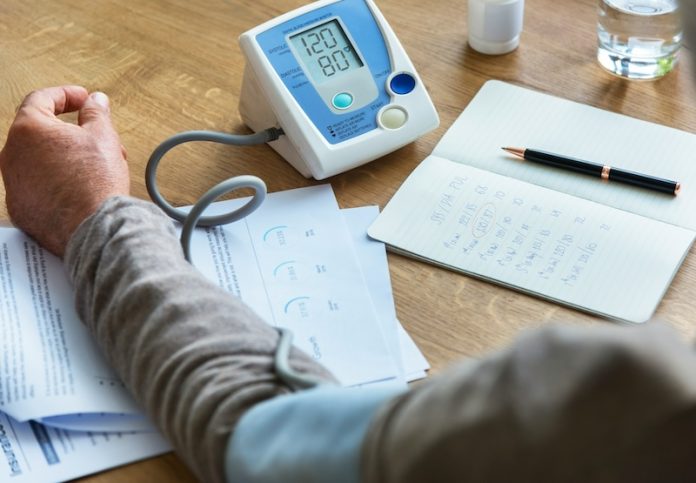
A new study presented at the American Heart Association’s Scientific Sessions 2024 reveals that intensive treatment to lower systolic blood pressure significantly reduces the risk of major heart and blood vessel problems in people with Type 2 diabetes.
The findings highlight the importance of strict blood pressure control in reducing the risk of heart attack, stroke, heart failure, and cardiovascular-related death.
People with Type 2 diabetes are particularly prone to high blood pressure. Studies estimate that nearly three-quarters of adults with Type 2 diabetes also have elevated blood pressure, doubling their risk compared to those without diabetes.
High blood sugar levels in diabetes can damage blood vessels and kidneys, leading to increased blood pressure. If left untreated, this can result in severe complications, including heart attacks, strokes, heart failure, and kidney problems.
The BPROAD study was conducted to determine whether lowering systolic blood pressure to below 120 mm Hg through intensive treatment could provide better protection against these cardiovascular events compared to a standard target of below 140 mm Hg.
Systolic blood pressure, the higher number in a blood pressure reading, measures the force of blood against artery walls during heartbeats and is a key factor in assessing heart disease risks.
Study Overview
The study enrolled 12,821 adults with Type 2 diabetes and elevated systolic blood pressure from 145 sites across 25 provinces in mainland China.
Participants were randomly divided into two groups: an intensive treatment group aiming for a systolic blood pressure below 120 mm Hg and a standard treatment group aiming for below 140 mm Hg. Both groups were closely monitored for up to five years.
Key participant details:
- The average age was 64 years.
- 45% of participants were women, and 55% were men.
- Over 22% had a history of cardiovascular disease.
- All participants had similar health conditions at the start, including blood pressure, cholesterol, and HbA1c (a measure of blood sugar levels).
Findings and Results
After four years, the average systolic blood pressure was 120.6 mm Hg in the intensive group and 132.1 mm Hg in the standard group. The results showed:
- A 21% lower relative risk of major cardiovascular events in the intensive treatment group compared to the standard group.
- Cardiovascular events such as non-fatal strokes, heart attacks, heart failure, or cardiovascular-related deaths occurred in 393 participants in the intensive group (1.65% per year) compared to 492 in the standard group (2.09% per year).
While the benefits were clear, some participants in the intensive group experienced side effects. These included more frequent cases of low blood pressure with symptoms (hypotension) and high potassium levels (hyperkalemia). However, overall serious adverse events, such as hospitalizations, were similar between the two groups.
Implications for Future Treatment
These findings support more aggressive blood pressure management for people with Type 2 diabetes to reduce their risk of cardiovascular problems. Dr. Guang Ning, the study’s lead author, stated, “These results provide strong evidence for a lower systolic blood pressure target to prevent major cardiovascular events in patients with Type 2 diabetes.”
Importantly, this study aligns with earlier research showing a 27% reduction in cardiovascular disease risk among people with high blood pressure who did not have diabetes. These consistent results strengthen the case for setting stricter blood pressure goals in clinical guidelines.
Study Limitations
Despite its strengths, the study had some limitations. Participants and doctors were not blinded to treatment groups, and during the COVID-19 lockdown, participants relied on home blood pressure monitoring, which might have affected data accuracy. Additionally, the findings may not apply to populations with different ethnic backgrounds or health characteristics.
Conclusion
This study demonstrates that intensive systolic blood pressure control can substantially reduce the risk of heart disease and related deaths in people with Type 2 diabetes.
While more research is needed to identify those who benefit most from such treatments, these findings could influence future clinical guidelines and offer hope for better cardiovascular health outcomes in this high-risk group.
Managing blood pressure carefully, combined with lifestyle changes and medication, remains a cornerstone of care for people with diabetes.
If you care about high blood pressure, please read studies about unhealthy habits that may increase high blood pressure risk, and drinking green tea could help lower blood pressure.
For more information about high blood pressure, please see recent studies about what to eat or to avoid for high blood pressure, and 12 foods that lower blood pressure.
Copyright © 2025 Knowridge Science Report. All rights reserved.



